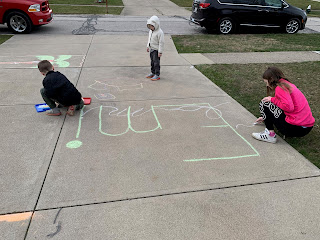Simple Dessert Math!

Creating meaningful, learning activities does not have to take weeks of planning and lots of supplies. In fact, it can and should be flexible and impromptu! As a teacher I tend to have things that most families don't have lying around the house, but that doesn't mean you NEED to have these materials to create a cool experience! For example, at my house we try to incorporate learning into little things. So when I make something new for dinner we go around the table and rate it from 1-5. This sounds silly, but it's a great conversation starter AND a way to incorporate math into the daily routine. Yes, actually using a rating scale and rating a meal is math. Children are developing sense of quantity and measurement by deciding what to rate food they ate! Want to take it a step further and incorporate writing? Record it on paper! The other day my niece was over and she doesn't like to try new foods. I know this, so we had an imprompt...

